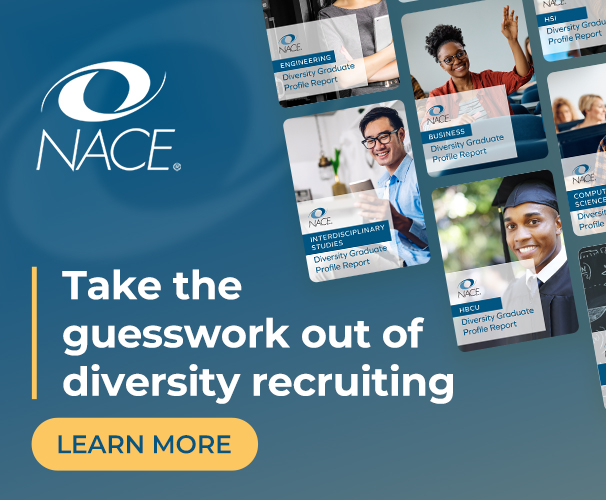Spotlight for Recruiting Professionals
Tribal Colleges and Universities (TCUs) have high percentages of Native students from Reservations that typically reach or exceed 80% of the student population. This can be problematic for Native students, their TCUs, and employers looking to recruit them because poverty levels on Reservations are much higher than U.S. poverty rates off of them.
“Reservations may only have one community center with internet access and one shared laptop for the entire Tribe to use at the community center,” says Connie Sheehan, career services director at United Tribes Technical College (UTTC).
“The community center may be located some distance from the student’s home. It is likely that the student’s family does not own a car.”
This leads to important questions around how to reach these students in our fast-paced, digital world and about their technical skills compared to others from the predominant culture.
“We also see many extended family members—such as grandparents and aunts and uncles—helping to raise children,” Sheehan says.
“How does this older generation connect with current technology? Repeating themes of need center around childcare, transportation, the internet, and finances. Bridging these gaps to talent will aid employers in recruitment efforts.”
There are also cultural factors for employers to be aware of when working with TCUs and recruiting Native students. For example, many Native students put the needs of their community, elders, and relatives before themselves.
“A graduate may commit to employment, but if the larger family is in need of help, the graduate will go and help the family,” Sheehan says.
“Many graduates feel that the employer's family/sick leave only extends to themselves, and does not allow a relative to be included in personal sick leave. The employer's sick leave policy may force the graduate to quit employment versus taking a leave of absence.”
This can cause financial issues for Native students who participate in programs to offset educational costs. For example, Sheehan explains that state and university initiatives to promote hiring and keep graduates in state have created employment incentives that may require up to a three-year commitment from the graduate to work at their organization. If the graduate does not fulfill the requirement, they may have to pay back the employer or state system for the wages or tuition received from that entity.
“It is very understandable for a company or for a state entity to protect its investments,” Sheehan says.
“My question is: How can this look differently to encompass the needs of new graduates?”
Some graduates look for the security of other programs, such as apprenticeships that have contracts to turn into full-time employment with a company. The shift from COVID-19 to part-time, virtual work along with that done in person may also be an option, she offers.
“Other employers hire as jobs arise and create contractual work over time with the needs presented,” Sheehan continues.
“As we deal with a new normal and a new generation of graduates, especially minority students, flexibility may hold some of the answers. Opening up conversations such as these with students and graduates is a first step.”
Employers can help TCUs find solutions to these and other challenges through traditional ways of partnering, such as attending job fairs, participating in mock interviews, posting jobs, hosting interns, and speaking in classrooms.
“But first,” Sheehan cautions, “trust must be built.”
Trust is an important factor for Tribal people, one TCUs and other schools encounter.
“Historical trauma exists when educating young Indigenous populations,” she explains.
“Students have grandparents who were forcibly removed from their Tribal homes and taken to boarding schools to learn the ‘white man’s culture.’ It can be difficult for some elders [grandparents] to even trust higher educational institutions—including TCUs—with their loved ones. Education for them has been a very damaging experience.”
In terms of recruiting, trust is built when employers continue their relationships with TCUs instead of making a one-time stop to a job fair or career-related event.
“Student scholarships, sponsoring sporting events, food, and gifts all contribute to building trust,” Sheehan says.
“We ask, does this employer truly seem to care about the student? Their family? How is that shown over time?”
TCUs are now opening up conversations with employers around diversity, equity, and belonging. TCUs and Native students want to know how employers onboard new employees, about the application process, and more.
“Are there scaffolds of support available at the start?” Sheehan asks.
“Are there any roadblocks built into the application process? Once a Tribal graduate has started with a company, is there a value system in place around giving back to the community? If a Tribal graduate feels that their work directly contributes to others, a cultural aspect is being met. Other values that attract Tribal graduates to companies are group decision-making, environmental protection, helping others, and flexibility for family needs.”
Sheehan says employers can maximize their relationships with TCUs by aligning company values with the Native community’s values.
“Remember,” she says, “these values can be presented to graduates that reflect a high priority of family, giving back to the community, and group decision-making. Do you have company policies that are inclusive of these? What do they look like? And again, reviewing the onboarding process, knowing that many students are only using their cell phones for all internet-required applications.”
UTTC career services recently incorporated Native values into related work experiences when it placed human social services student interns to work virtually and collaboratively in starting up a new homeless youth shelter on a South Dakota Reservation.
“Students gathered sustainable resources, assisted in creating policies and procedures, and also directly mentor youth at the shelter,” Sheehan says.
“They work together during class to exchange information and decide on how to report back to the shelter administration.”
Most of all, Native students want to have the opportunity to find meaningful work.
“Tribal students walk in two worlds: the predominant white culture and their traditional culture,” Sheehan explains.
“TCU students may experience culture shock leaving a Reservation and attending a TCU. What sort of experiences might they have entering the workplace, knowing their cultural backgrounds? Tribal students just want to belong, like everyone else.”






